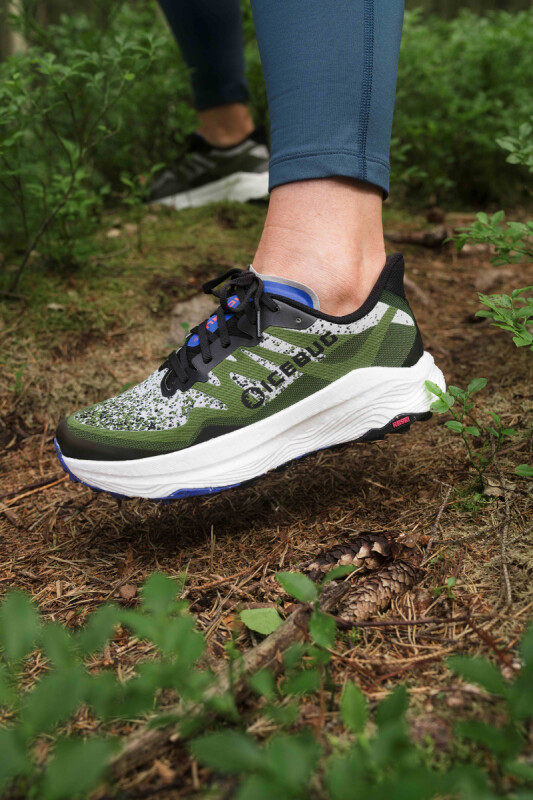Polartec might not be a household name to consumers, but its name is well known among manufacturers seeking innovative and sustainable textiles. Running-oriented brands such as Vuori, rabbit, Oiselle, Nike and Satisfy have all used premium Polartec fabrics, membranes and textile technologies to create everything from lightweight tanks and tees to weather-protective shells.
Polartec’s commitment to sustainability runs long and deep.
In 1993, Polartec invented the first fleece crafted from recycled plastic water bottles. In leveraging that knowledge to create high-performance fleece, insulation and other fabrics, Polartec has kept more than 2.5 billion – yes, billion – plastic bottles out of landfills.
Over recent years, Polartec has continued prioritizing innovation alongside environmental stewardship.
In 2023, for instance, the brand introduced Biolon-based products, replacing fossil-fuel derived nylons with a renewable, plant-based nylon alternative that reduces carbon emissions by up to 50 percent. Later this year, the brand will debut a new Biolon plant-based fabric completely severing ties with fossil fuels.
“The R&D process is rigorous and can take years, but bringing the premium products to market that protect the planet in addition to people is what we do at Polartec,” says Ramesh Kesh, senior VP at Milliken, Polartec’s parent company.
Polartec has also removed all environmentally damaging PFAs from its product portfolio – something it achieved in 2021 well ahead of regulatory requirements – and reduced microfiber shedding with innovative technologies and constructions in fabrics to help protect oceans and waterways. Many of the brand’s key fabrics, including Polartec Power Air and Polartec Power Shield, feature recycled inputs and plant-based components.
“These efforts, paired with long-lasting product durability, reduce our impact, reduce waste and extend the life cycle of the clothing and gear that are built with Polartec fabrics,” Kesh says, adding the brand has proven there’s “no need to compromise performance to protect the planet.”
Moving forward, Kesh promises continued textile innovations blending cutting-edge performance with sustainable practices. He also pledges ongoing investment in low-impact materials that can be easily repurposed or recycled.
“Sustainability is an ethical choice – some would say obligation – and an opportunity for innovation,” Kesh says. “Every fiber we engineer is a chance to do better for people, for products and for the planet, and with over 30 years of leadership in recycled and sustainable textiles, we see environmental stewardship as a responsibility we’re perfectly positioned to deliver on.”







